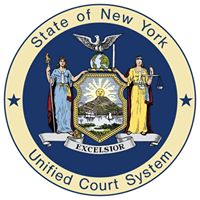In the latest amendment to the New York Commercial Division Rules, on January 7, 2022, Chief Administrative Judge Lawrence K. Marks ordered the implementation of new Commercial Division Rule 30, requiring mandatory settlement conferences. The new rule takes effect on February 1, 2022. A copy of Judge Marks’ Order, including the new rule’s text, can be found here.

As with all of the recent developments in the Commercial Division Rules, the Commercial Division Advisory Council (CDAC) played a key role. The CDAC’s September 25, 2020 memorandum, advocating mandatory settlement conferences, can be found here.
The timing of settlement conferences is always an interesting issue. Under new Rule 30, scheduling of a mandatory settlement conference is triggered by a Note of Issue’s filing. (A Note of Issue, and the accompanying Certificate of Readiness, signal to the court a case is trial ready.) Thus, the new rule contemplates circumstances where the parties have either not been able to settle among themselves, never attempted settlement, or may have used private ADR services unsuccessfully.
The CDAC recommendations observe, among other things:
This proposal facilitates a more cost effective timing of settlements for clients. Moreover, one of the principal goals of the Commercial Rules is to make the business litigation process in New York more cost-effective, predictable, and expeditious, and to thereby provide a more hospitable and attractive environment for business litigation in New York State. We believe that business clients will find attractive the improvement, enhancement, and institutionalization of the settlement process and that this new rule has been designed to be responsive to the needs and concerns of the business community.
The CDAC makes behavioral observations that support use of mandatory settlement conferences to remove psychological and strategic obstacles to settlement:
We know that there are times when parties are reluctant to initiate a settlement conference based on their concern that a settlement overture may signal “weakness” with respect to the strength of their case or their ability to fund the costs of a trial and possible appeals thereafter, or the willingness to endure a public trial that may illuminate facts and/or issues that may give rise to other business or regulatory problems. Parties may also be disinclined to participate in voluntary ADR as they perceive it as a waste of time because of their perception that the parties are unlikely to settle or as an additional cost or because they want a trial for some business or personal reason, or a perceived need for a judicial precedent. Moreover, based on posturing by the parties, or other reasons, parties may simply be unaware that settlement is possible. A mandatory settlement conference eliminates excuses for not participating in a settlement discussion, and that is what is proposed here.
We leave you to the CDAC’s memo for its further rationale in developing and recommending this new rule, and to the text of the rule itself for the details. We do note that the settlement conferences may be held by an assigned judge or other judge, a judicial hearing officer or special referee, neutrals selected from the Court’s roster of neutrals, or private neutrals mutually agreed upon by the parties.
Our thanks to business courts pioneer Robert L. Haig of Kelley Drye, for bringing this development to our attention.
